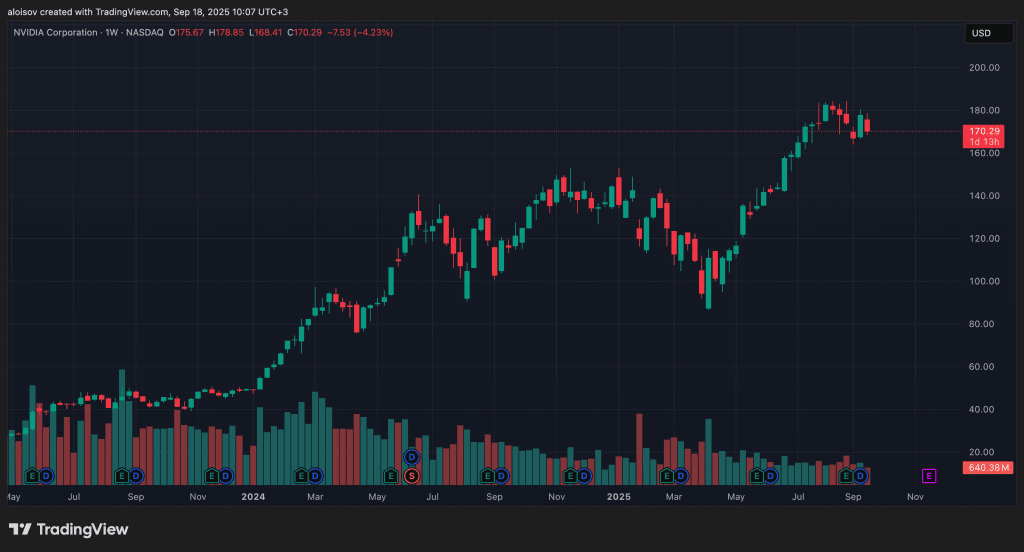China has ordered its largest technology companies to stop purchasing AI chips #NVIDIA and cancel existing orders. The Cyberspace Administration of China (CAC) has instructed companies, including ByteDance and Alibaba, to halt testing and orders for the RTX Pro 6000D.
The new ban is stricter than previous recommendations that concerned the H20 — the previous version of the Chinese Nvidia chip. Several companies have already indicated that they were ready to order tens of thousands of RTX Pro 6000D and began testing with server suppliers before receiving the order to stop work.
Nvidia caught between two fires
Nvidia CEO Jensen Huang, speaking in London, acknowledged the complexity of the situation: "We can only operate in a market if the country wants us to. I am disappointed by what I see, but they have bigger plans for the resolution between China and the U.S."
The company's stock, valued at over $4.2 trillion, fell by 2.6%. Nvidia dominates the AI chip market and attracts close attention from both the White House and Xi Jinping's administration.

In mid-August, Trump organized a deal granting Nvidia licenses to sell H20 chips in China in exchange for 15% of sales. However, the company stated that it had not shipped any chips to China, and the U.S. has yet to develop rules for receiving payment.
The high cost of confrontation
Restrictions will seriously impact Nvidia's business in China — one of the largest semiconductor markets, which accounted for 13% of the company's total sales last year.
Multinational tech giants are expected to skillfully navigate between Washington's national security doctrines and Beijing's techno-sovereignty demands while maintaining shareholder satisfaction.
Against the backdrop of turbulence, Nvidia sharply increased its lobbying expenses in Washington — nearly $1.9 million in the first half of 2025 compared to $640 thousand for the entire previous year. The company hired three new lobbying firms with 21 specialists.
The new RTX6000D chip, adapted for the Chinese market, has already faced lukewarm demand due to cost inefficiency. Chinese solutions only confirm that the technological confrontation between the two superpowers turns even the most successful companies into hostages of grand politics.

